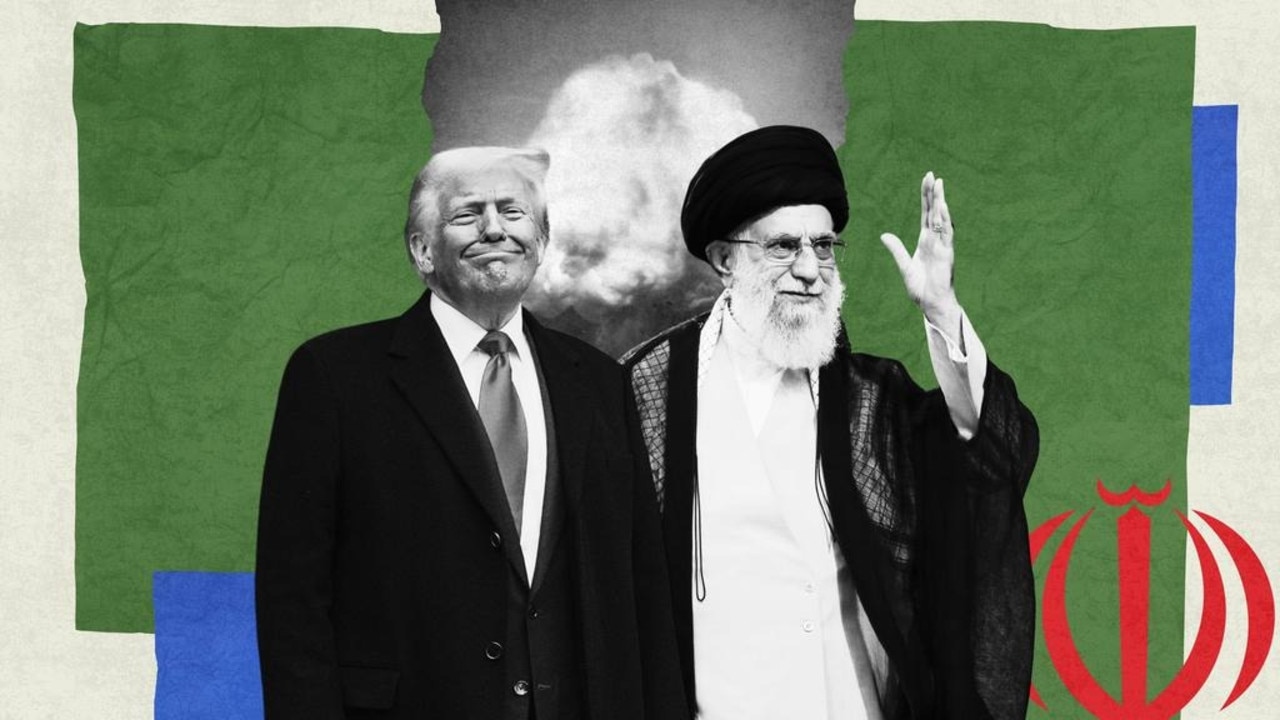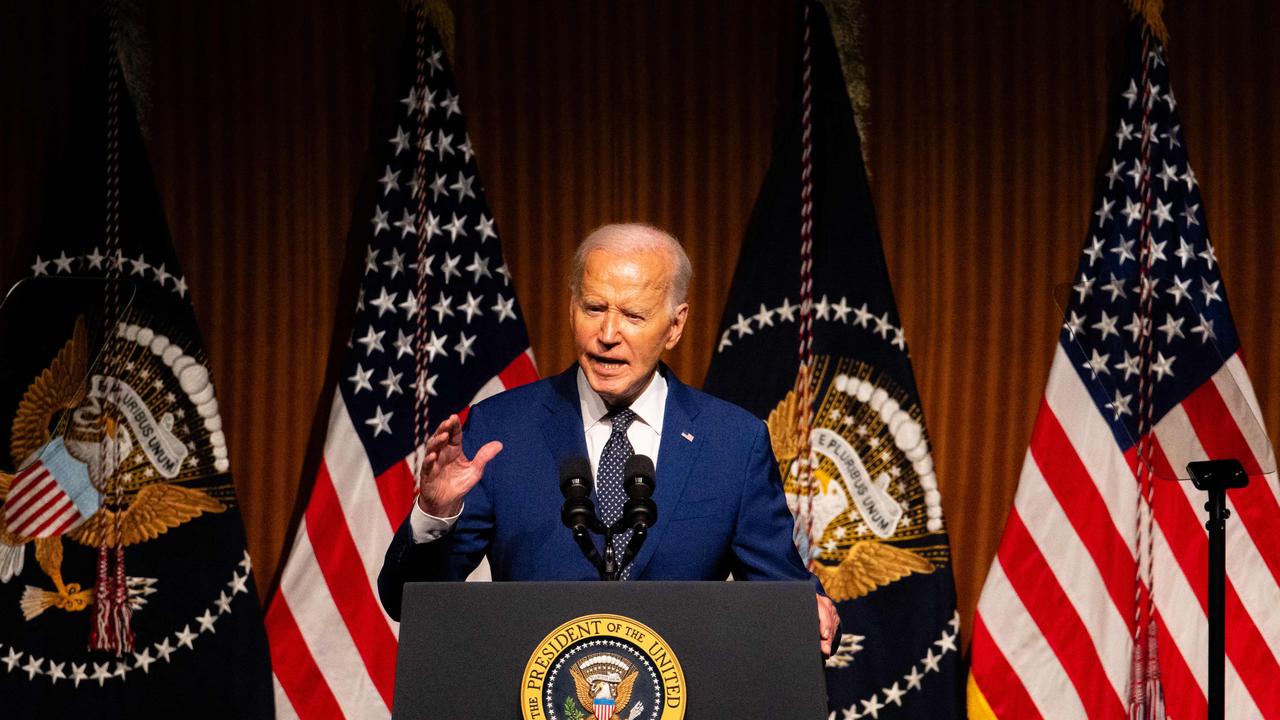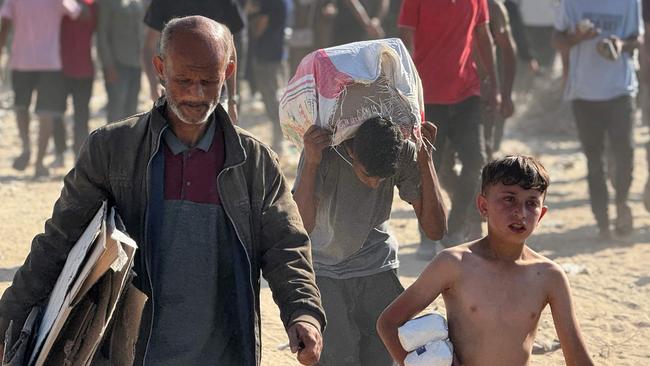
You may be tempted to think the new US-backed aid distribution system in Gaza is yet another disaster to befall Palestinians, given the criticism international agencies have hurled at it and the chaotic teething problems it encountered on its second day of operation. But think again. The most telling criticism of the new system came from Hamas, which warned it would not allow food to be used “as a weapon during wartime”.
The irony was apparently lost on the terror group which maintains its power over ordinary Gazans by stealing aid as it comes into the strip, then selling that aid at inflated prices to the locals – in other words, using food as a weapon of control.
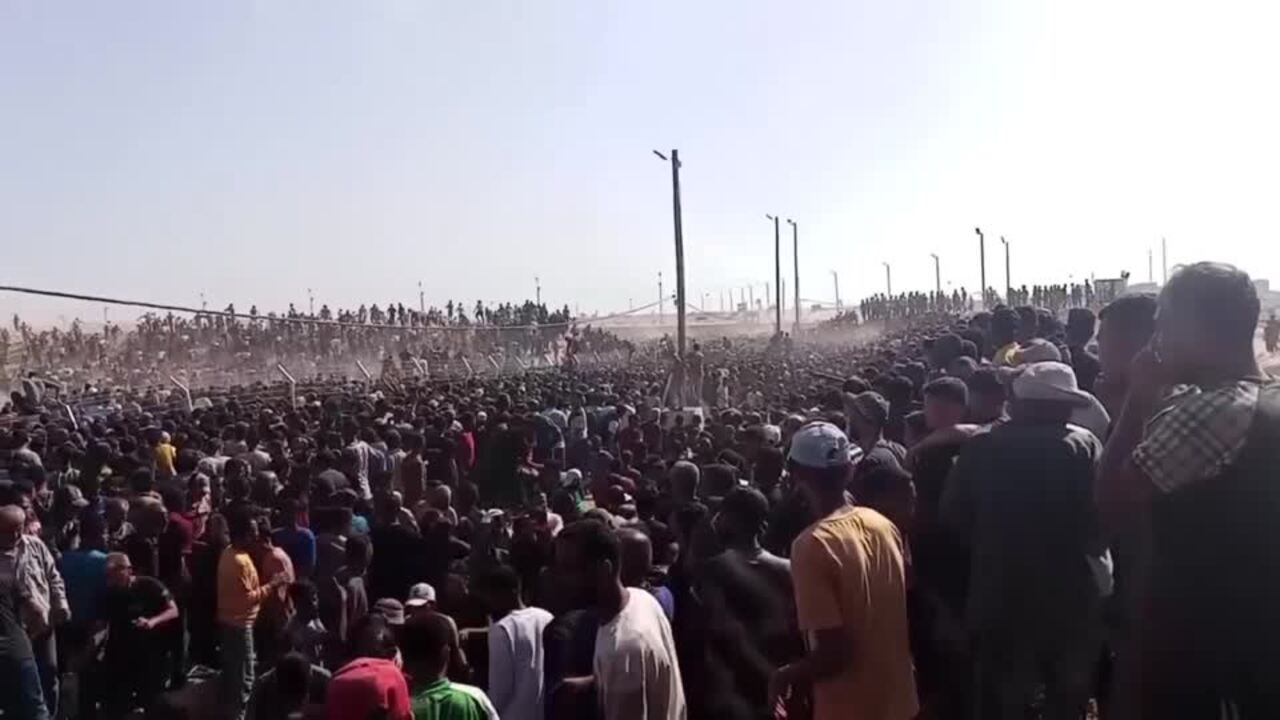
What’s more, Hamas – showing its heartfelt concern for the welfare of its own people – threatened that any Gazan who co-operates to help impose the new aid system “will pay the price, and we will take the necessary measures against them”.
The terror group has reason for concern: the new system of aid distribution has been introduced to stop Hamas stealing the aid and giving it to its own fighters before reselling the remainder for profit.
If this new system succeeds in doing this, Hamas loses the ability to feed its fighters. It also loses a crucial level of control over the population, many of whom are angry at the group for the misery it has wreaked on them as a result of its terror attack on Israelis on October 7, 2023.
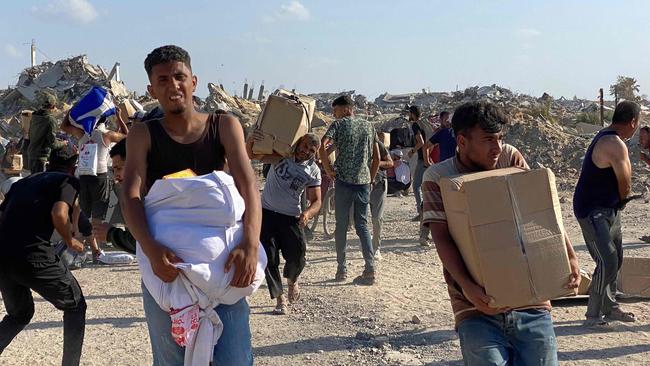
So, what is the new system? It is run by a new entity backed by the US and Israel, called the Gaza Humanitarian Foundation (GHF). Unlike other aid agencies, it seeks to protect the aid from Hamas by having its own distribution points in Gaza guarded by private security firms. For extra security the Israeli military is present on the periphery.
The new aid system will rely initially on four major distribution centres in southern Gaza, where people must go to collect supplies. Families are to be screened for involvement with Hamas militants, potentially using facial recognition or biometric technology. Four more distribution hubs in central and northern Gaza will be established, and until they are operational, the existing UN-led system of aid distribution will continue in parallel.
The criticism by the UN and other NGOs is that the new system holds the potential for abuse because it could force the local population to move to where it is being distributed, helping Israel’s aim of moving people to the south of Gaza while its military campaign focuses on the north of the strip. The GHF insists it would not be a part of any such policy of forced displacement. The UN also says the new system violates the principles of independence and impartiality in aid distribution.
It is true the US and Israel, rather than the UN and other agencies, will have influence now over the way aid is distributed in Gaza, but the only reason that is now the case is because Hamas was so easily looting the UN-supplied aid to Gaza.
The US state department calls the UN’s criticism of the GHF “the height of hypocrisy” because “the issue here is giving aid to Gaza, and then suddenly it moves into complaints about style or the nature of who’s doing it”.
This new aid system will not be perfect, and the chaotic scenes which accompanied its second day of operations show there will be teething problems. But when it is up and running, it promises to offer the best hope of feeding Gazans without also feeding Hamas.


